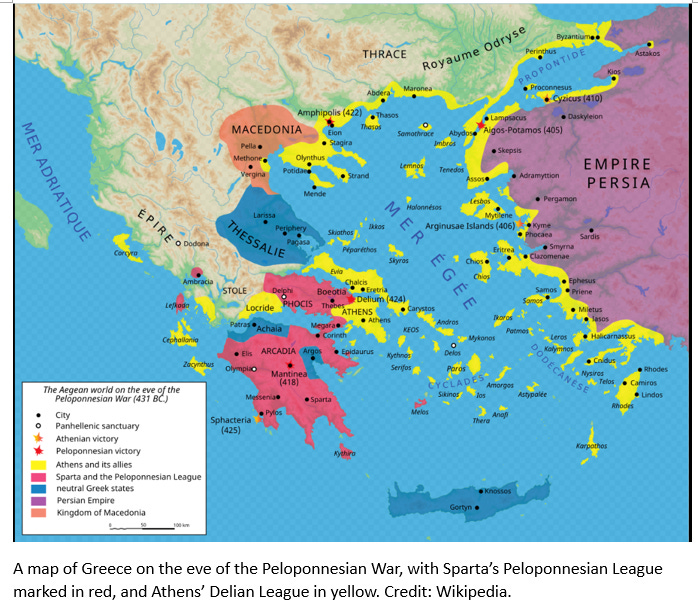Welcome! I'm David Roman and this is my History of Mankind newsletter. If you've received it, then you either subscribed or someone kind and decent forwarded it to you.
If you fit into the latter camp and want to subscribe, then you can click on this little button below:
To check all previous newsletters in the History of Mankind, which is pretty long, you can click here.
Conservative Sparta wasn’t as impacted by victory against Persia as Athens was. With a well-functioning, if sometimes stifling, political system in place, the city and its own league of subject poleis enjoyed the benefits of peace with little fanfare.
The city had once produced poets and artists, but by the 5th century BC it appears to have been solidly focused on its specialty of crushing enemies and producing elite soldiers to keep its dominance in place.
Like a handful of Greek polities, mostly the ones most isolated from sea-trade routes, Sparta avoided both the Persian yoke and the democratic wave brought forward by the traders, lawyers and sophists. Indeed, as a small city-state isolated amid arid hills, obsessed with worshipping ancestors and cultivating moral virtue, Chinese thinkers like Confucius and later Mozi would have likely found Sparta a lot less foreign than Athens or any of the democratic poleis.
Spartans, pioneers in sumptuary laws as in so many other things, weren’t allowed to possess gold and silver coins and it was not until the Third Century BC that Sparta began to mint its own coins.
Keep reading with a 7-day free trial
Subscribe to A History of Mankind to keep reading this post and get 7 days of free access to the full post archives.




